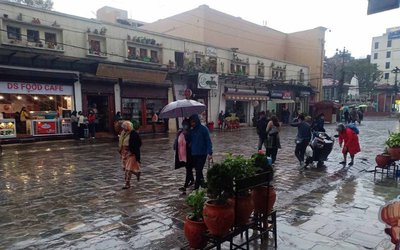
At a time when the South Asian sub regional countries are talking on the use of water resources for the benefits of the people, various agencies are coming to support the utilization of water.
In its latest attempt, Oxfam has launched a five-year program to promote improved policies and practices that protect the rights of communities along the Ganges, the Brahmaputra-Meghna and the Salween river basins.
To do this, the program will work with governments, private sector and other actors as well as women’s networks to strengthen their voice in decisions on water management and infrastructure.
The ‘Trans-boundary Rivers of South Asia (TROSA)’ program was launched in Kathmandu, Nepal on May 25, 2017 in the presence of Oxfam representatives and teams, regional partners, representatives from donor agencies, and other dignitaries. Funded by the Government of Sweden through its Swedish International Development Cooperation Agency (SIDA) office in Bangkok, Thailand the project will be implemented by Oxfam and regional and national partners in India, Nepal, Bangladesh and Myanmar. ‘Cooperation around trans-boundary Rivers is necessary to ensure sustainable development, poverty reduction and fair use of resources.
The TROSA program brings all of these perspectives together to reduce poverty and marginalization of vulnerable river basin communities through increased control over the water resources on which their livelihood depend’, said Anne-Charlotte Malm, Head of Regional Development Cooperation at the Embassy of Sweden in Bangkok, Thailand. Asia’s river basins reach from the world’s tallest mountains, through extensive floodplains and lowland systems to fertile wetlands, deltas, estuaries and bays. The ecosystem provided by the waters of these basins boosts the economic wellbeing of people and their nations.
The rivers are at the heart of culture and religion, and the waters and rich sediment loads support fisheries and agriculture of national and global significance. The waters connect nations and provide the means for trade. Yet, hundreds of millions of people in Asia do not have secure access to water due to growing competition over natural resources caused by infrastructure development, agricultural, urban and industrial expansion and the effects of climate change.
Access to water is an issue in South and South East Asia, and the shared nature of rivers causes tension between neighbors over how waters are governed and managed within and across borders. ‘The sharing of trans-boundary waters is complex as it involves people from diverse groups who depend on the same water for their lives and livelihoods. In South Asia, natural resources, especially water, is shared across social and political boundaries. There, we need to have policies using a trans-boundary lens for water governance and include the interests of local communities and marginalized groups’, said Oxfam’s Regional Director Lan Mercado.
Today more than ever, cooperation is needed to meet the water-related needs of Asia’s growing population in the river basins for food production, energy, industrial and domestic uses and sustain its ecology. Thus cooperation among neighboring countries can be nurtured through dialogue and people-to-people contact.
The TROSA project will engage relevant stakeholders to produce knowledge that supports decision makers in balancing economic growth, social justice and resilient ecosystems. The TROSA project is aiming to strengthen the capacity of river basin communities and civil society to have their voice heard in trans-boundary water resource management. By bringing together academic research with local knowledge, the project will build on evidence which will influence the trans-boundary water resource governance.
- FORMER KING GYANENDRA: Bating Constituional Monarchy
- Apr 28, 2025
- NC-UML COALITION: In Turmoil
- Apr 27, 2025
- TEACHERS ON STRIKE: Students' Future In Jeopardy
- Apr 25, 2025
- NEPAL-THAILAND: Joint Business Council
- Apr 13, 2025
- BIMSTEC SUMMIT: Nepal’s Stand
- Apr 11, 2025














